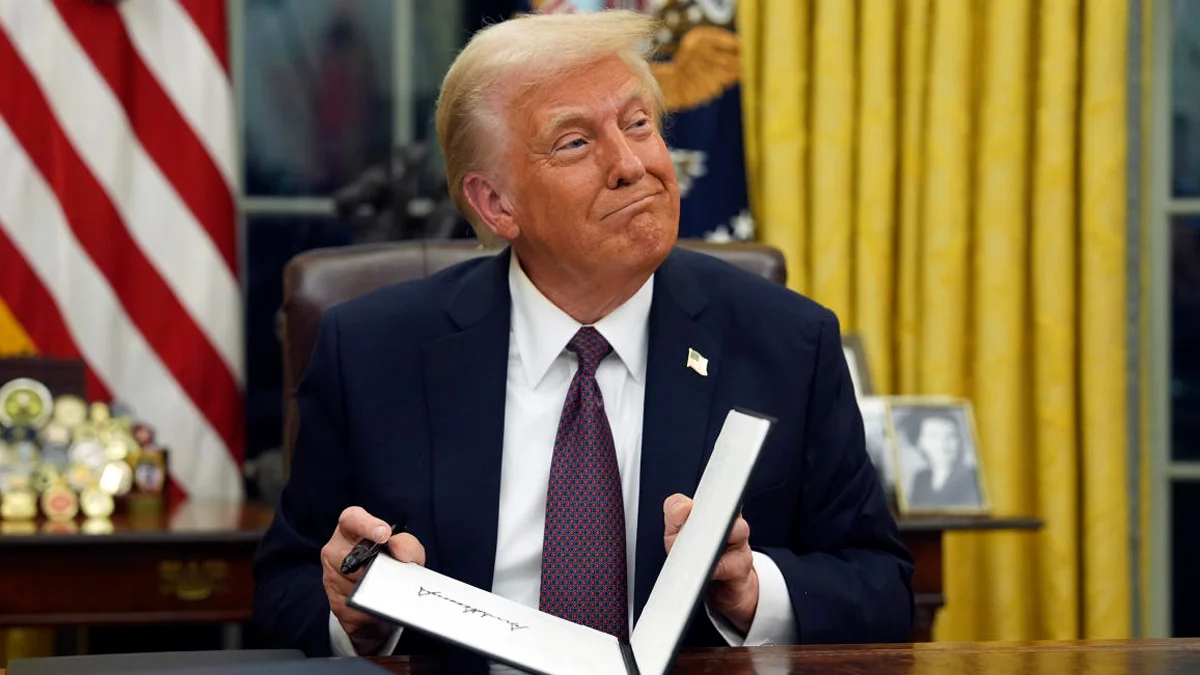Necessary Always Active
Necessary cookies are required to enable the basic features of this site, such as providing secure log-in or adjusting your consent preferences. These cookies do not store any personally identifiable data.
|
||||||
|
||||||
|
||||||
|

US President Donald Trump has signed an executive order to shield TikTok from being banned in the country, at least temporarily. Trump’s shield against the TikTok ban is for a 75 day period, Yahoo Finance has reported.
Experts have termed Trump’s executive order on TikTok as dubious. The 75-day window allows the Trump administration to find a suitable way forward for the social media giant’s business in the US after the divest-or-ban law took effect on January 19.
Trump based his decision to issue the executive order on his unique presidential duties. In the directive, the president argued that the timing of the new law interfered with his ability to assess the foreign policy and national security implications of the prohibitions in the Act before the law took effect.
“This timing also interferes with my ability to negotiate a resolution to avoid an abrupt shutdown of the TikTok platform while addressing national security concerns,” The President’s Directive added.
The video streaming app shut down briefly after the law took effect. TikTok’s service was restored shortly after the President committed to revive it upon taking office. Apple and Google had already removed TikTok from their stores.
Trump’s executive order has a very small chance of fixing TikTok’s legal challenges in the US. The order cannot withstand the weight of the Protecting Americans from Foreign Adversary Controlled Applications Act. This is the law that places the ultimatum to divest ownership or face the ban on TikTok’s parent company, ByteDance
“Under current Supreme Court precedent, an executive order is on very shaky ground,” Kent Law School professor, Mark Rosen said.
Rosen further added that previously, the US high court has pronounced orders that contravene federal law as invalid. A precedent set through the Supreme Court’s 1952 landmark ruling underscores limitation on presidential precedent. This precedent makes Trump’s executive order on TikTok highly unreliable.
The divest-or-ban law does not provide for an outright US TikTok ban. Rather, it prohibits users from accessing the social platform through app stores and cloud services unless TikTok’s owner- ByteDance sells the app to a country that is not considered adversarial by the US.
Trump emphasized his proposal of a joint venture where the US gets a 50% stake in TikTok as one way of resolving the social media platform ban. The president also proposed introducing tariffs on China if they don’t agree to a proposed buyer of the video streaming app US assets.
But there are mounting questions on whether Trump can implement these promises. Some of his political allies have criticized TikTok and have been vocal about their support of the divest-or-ban law. When the law took effect on January 19, Republican Senators Tom Cotton and Pete Ricketts said ‘there’s no legal basis for any kind of extension of its effective date’.
Earlier this week, Cotton went ahead to assert that “there will be no extension, no concession, and no compromises for TikTok,” on the Senate floor.
Another Trump ally, House Speaker Mike Johnson, said he is keen to see the law enforced. Speaker Johnson said that he was encouraged to see that Apple, Microsoft, and Google had started complying with the new law. TikTok was still unavailable on Google Play and Apple App Stores on January 21 despite Trump’s order to delay its ban.
TikTok CEO was among the CEOs who attended Trump’s inauguration events on January 20. Other US big tech CEOs who participated in the inauguration were Google’s Sundar Pichai, Apple’s Tim Cook, and Meta’s Mark Zuckerberg.